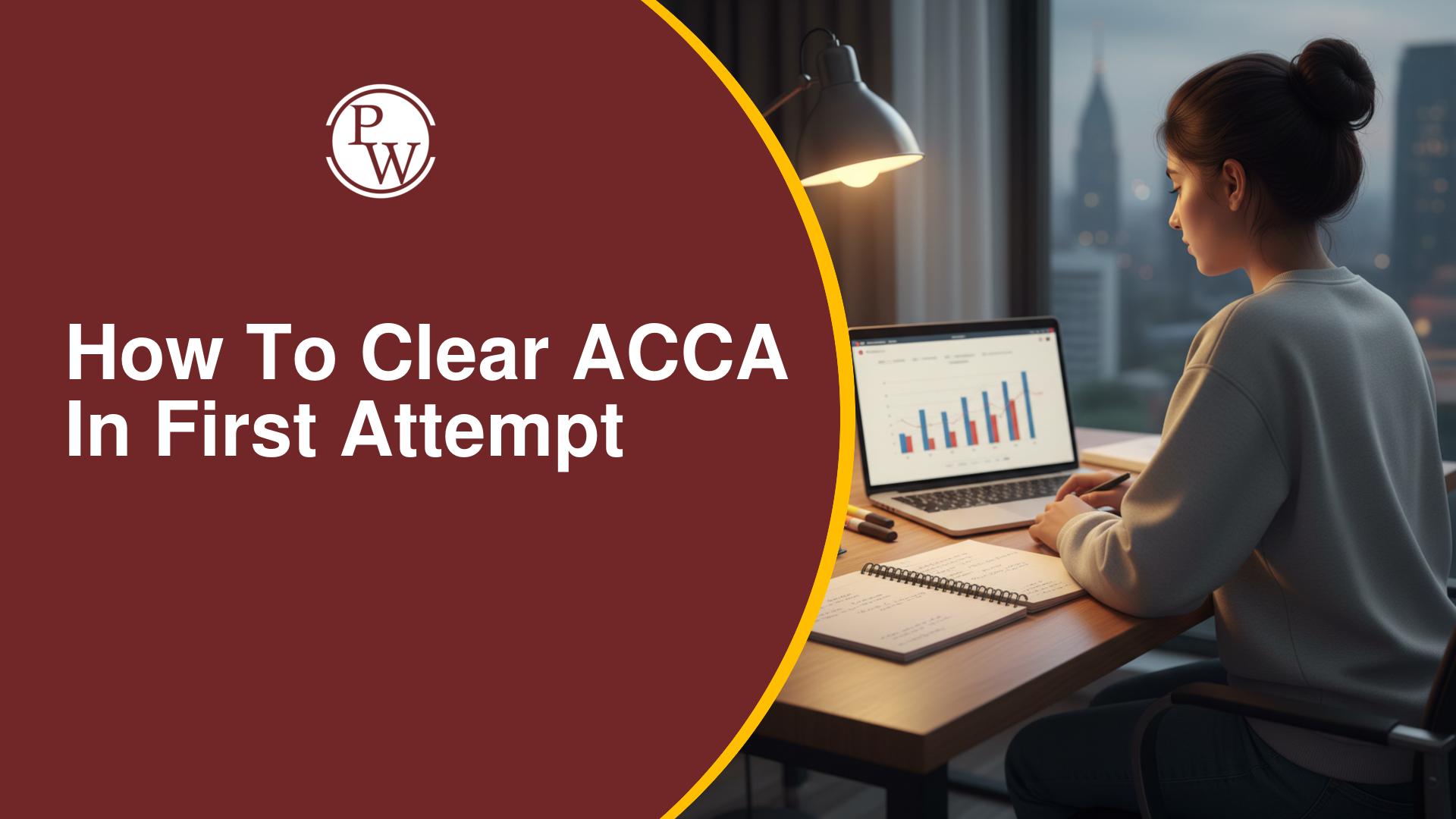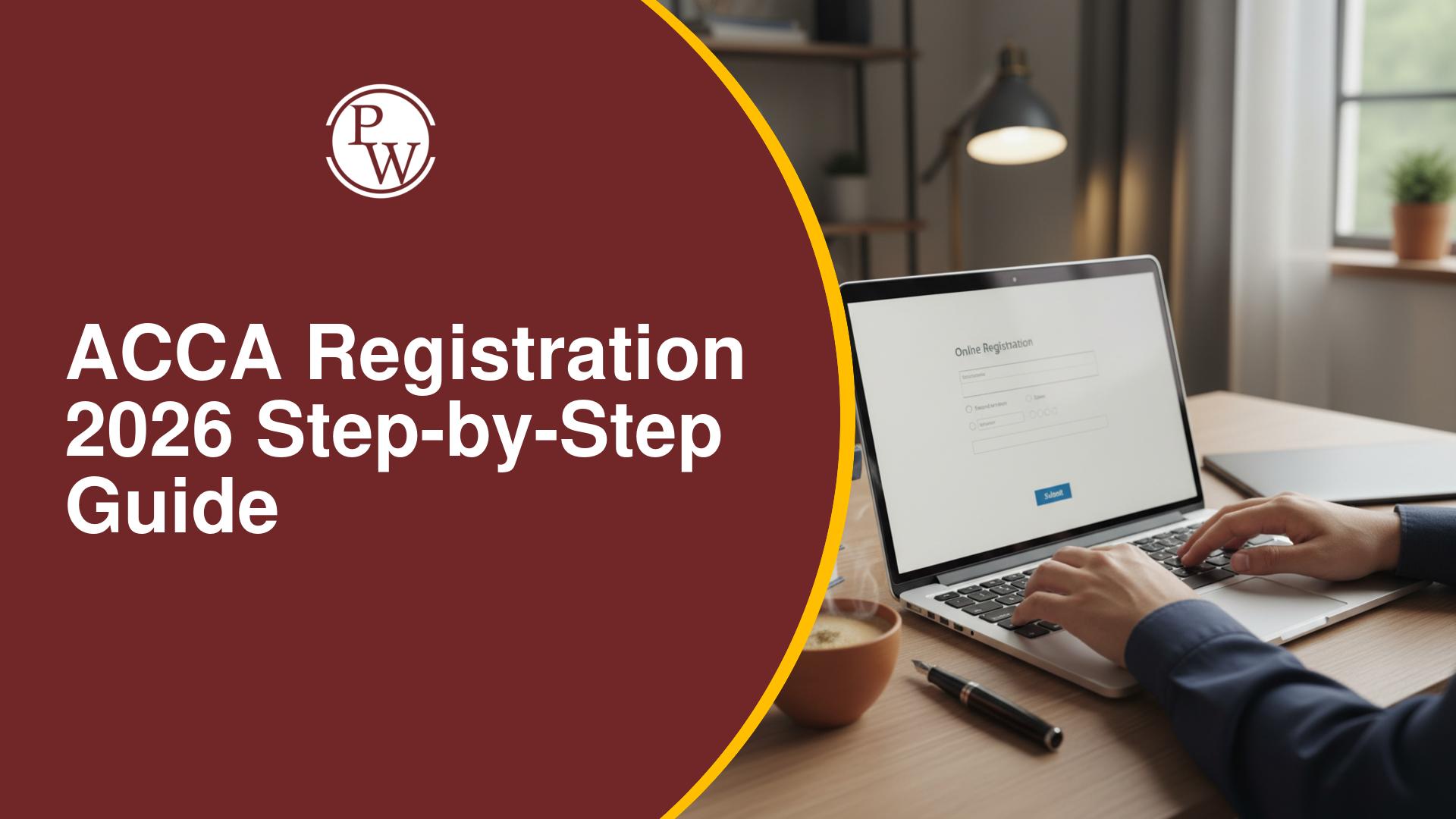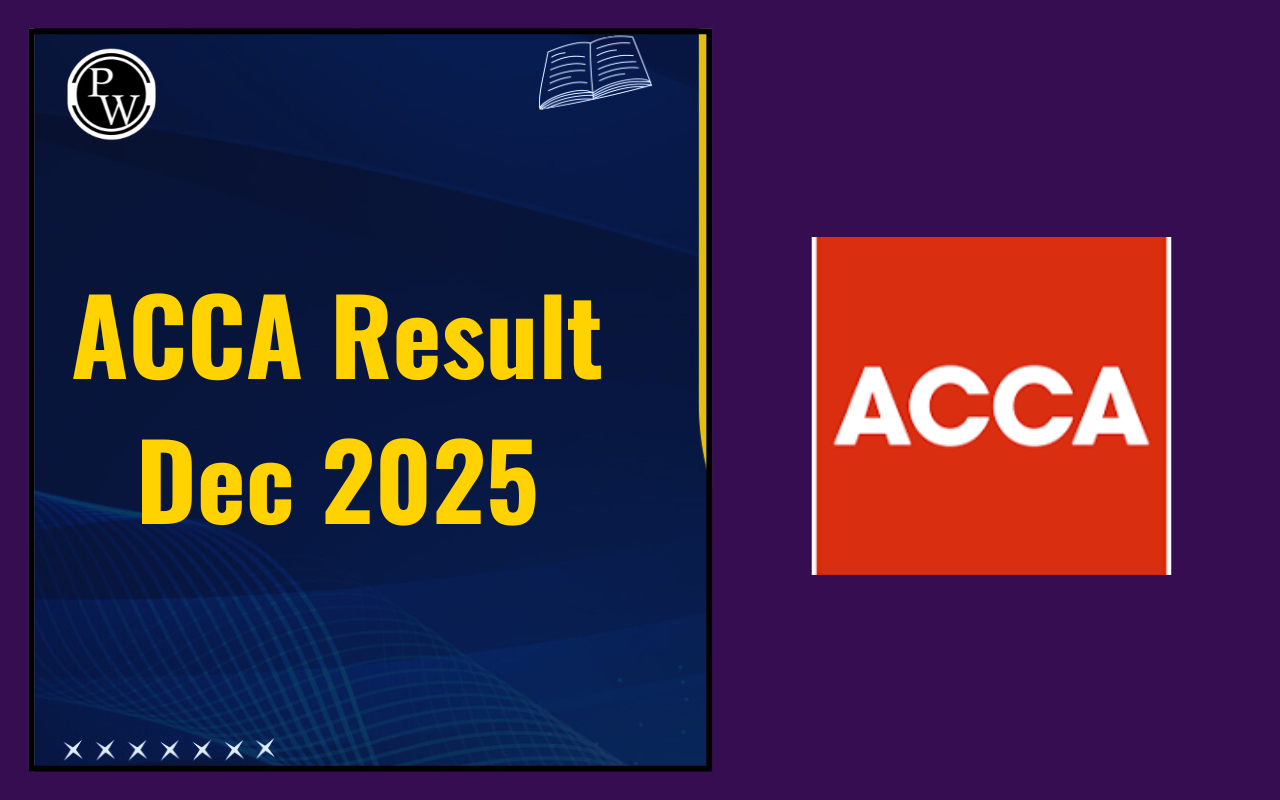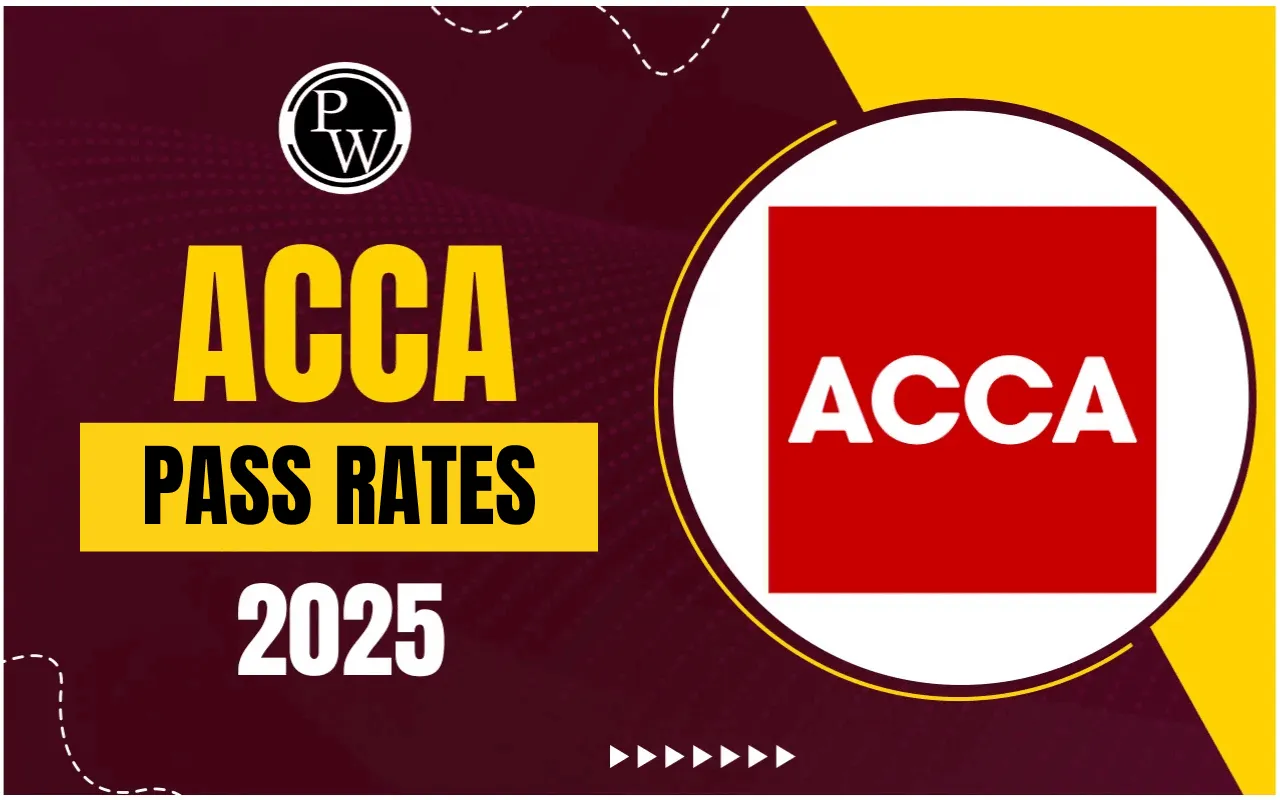
ACCA Knowledge Level: If you’re thinking about becoming a global accountant, the ACCA course is worth considering. Below, we’ve broken down simply the things you need to know about the ACCA Knowledge Level. We’ll touch on all the key points related to the ACCA Foundation Level subjects, F1, F2, and F3. Plus, we’ll dive into the ACCA 2025 syllabus, the exam format, study tips, and how the knowledge level differs from the skill level. So, let’s jump right in.
What is the ACCA Knowledge Level?
ACCA stands for the Association of Chartered Certified Accountants. It is a globally accepted accounting course. The full ACCA Course has 13 papers, divided into three levels: Knowledge, Skill, and Professional.
Below, we’ll focus on the ACCA Knowledge Level full details and help you understand what to expect at the starting level.
ACCA Knowledge Level F1, F2, F3 Complete Roadmap
ACCA Knowledge Level full details are explained below to help students understand the syllabus, subjects, exam pattern, and study strategies for a strong start in their ACCA journey.
If you’re thinking about becoming a global accountant, the ACCA course is definitely worth considering. Below, we’ve breaks down everything you need to know about the ACCA Knowledge Level in a simple way. We’ll touch on all the key points related to the ACCA Foundation Level subjects, F1, F2, and F3. Plus, we’ll dive into the ACCA 2025 syllabus, the exam format, study tips, and how the knowledge level differs from the skill level. So, let’s jump right in.
What is the ACCA Knowledge Level?
ACCA stands for the Association of Chartered Certified Accountants. It is a globally accepted accounting course. The full ACCA Course has 13 papers, divided into three levels: Knowledge, Skill, and Professional.
Below, we’ll focus on the ACCA Knowledge Level full details and help you understand what to expect at the starting level.
Who Can Join the ACCA Knowledge Level?
Students who have finished Class 12 can directly join the ACCA Knowledge Level. For those who are still in school, the FIA (Foundation in Accountancy) route can be chosen after Class 10. This accommodating structure broadens access to more students.
ACCA Foundation Level Subjects
The ACCA Knowledge Level has three papers:
-
F1: Business and Technology (BT): This paper teaches students about business structure, ethics, and the role of technology
-
F2: Management Accounting (MA): This paper focuses on how managers use numbers to plan and make decisions.
-
F3: Financial Accounting (FA): This paper explains how to prepare financial statements and understand basic accounting rules.
These are ACCA Foundation Level subjects. These subjects form the base for the next level.
ACCA 2025 Syllabus
The ACCA 2025 syllabus includes the latest updates in technology, accounting tools, and professional skills.
ACCA Syllabus for Business and Technology (BT)
The ACCA F1 provides an introduction to the business environment and checks the key concepts related to technology.
| ACCA Syllabus 2025 for Business and Technology (BT) | |
| Section | Topic |
| A. The Business Organisation and its External Environment | 1. The Purpose and Types of Business Organisation |
| 2. Stakeholders in Business Organisations | |
| 3. Political and Legal Factors Affecting Business | |
| 4. Macroeconomic Factors | |
| 5. Microeconomic Factors | |
| 6. Social and Demographic Factors | |
| 7. Technological Factors | |
| 8. Environmental and Sustainability Factors | |
| 9. Competitive Factors | |
| B. Organisational Structure, Culture, Governance and Sustainability | 1. The Formal and Informal Business Organisation |
| 2. Business Organisational Structure | |
| 3. Organisational Culture | |
| 4. Governance in Business Organisations | |
| 5. Sustainable Business Practices | |
| C. Business Functions, Regulation and Technology | 1. The Relationship Between Accounting and Other Business Functions |
| 2. Accounting and Finance Functions Within Business Organisations | |
| 3. Regulation and Financial Crime | |
| 4. Financial Information Provided by Business | |
| 5. Financial Systems and Technology | |
| 6. Internal Controls | |
| 7. The Impact of Advances in Technology | |
| D. Leadership and Management | 1. Leadership, Management, and Supervision |
| 2. Individual and Group Behaviour in Business Organisations | |
| 3. Team Formation, Development, and Management | |
| 4. Motivating Individuals and Teams | |
| 5. Learning and Training at Work | |
| 6. Review and Appraisal of Individual Performance | |
| E. Personal Effectiveness and Communication in Business | 1. Personal Effectiveness |
| 2. Consequences of Ineffectiveness at Work | |
| 3. Competence Frameworks and Personal Development | |
| 4. Sources of Conflicts and Techniques for Conflict Resolution | |
| 5. Communicating in Business | |
| F. Professional Ethics | 1. Fundamental Principles of Ethical Behaviour |
| 2. The Role of Regulatory and Professional Bodies in Promoting Ethical and Professional Standards in the Accountancy Profession | |
ACCA Syllabus for Management Accounting (MA)
This subject covers the fundamentals of management accounting, emphasizing key principles:
| ACCA Syllabus 2025 for Management Accounting (MA) | |
| Section | Topic |
| A. The Nature, Source, and Purpose of Management Information | 1. Accounting for Management |
| 2. Sources of Data | |
| 3. Cost Classification | |
| 4. Presenting Information | |
| B. Data Analysis and Statistical Techniques | 1. Sampling Methods |
| 2. Analytical Techniques in Budgeting and Forecasting | |
| 3. Summarising and Analysing Data | |
| 4. Spreadsheets | |
| C. Cost Accounting Techniques | 1. Accounting for Material, Labour, and Overheads |
| 2. Absorption and Marginal Costing | |
| 3. Cost Accounting Methods | |
| 4. Alternative Cost Accounting Principles | |
| D. Budgeting | 1. Nature and Purpose of Budgeting |
| 2. Budget Preparation | |
| 3. Flexible Budgets | |
| 4. Asset Budgeting and Investment Appraisal | |
| 5. Budgetary Control and Reporting | |
| 6. Behavioural Aspects of Budgeting | |
| E. Standard Costing | 1. Standard Costing System |
| 2. Variance Calculations and Analysis | |
| 3. Reconciliation of Budgeted and Actual Profit | |
| F. Performance Measurement | 1. Performance Measurement - Overview |
| 2. Performance Measurement - Application | |
| 3. Cost Reductions and Value Enhancement | |
| 4. Monitoring Performance and Reporting | |
ACCA Syllabus for Financial Accounting (FA)
The ACCA F3 syllabus serves as a beginner’s guide to financial accounting:
| ACCA Syllabus 2025 for Financial Accounting (FA) | |
| Section | Topic |
| A. The Context and Purpose of Financial Reporting | 1. The Scope and Purpose of Financial Statements for External Reporting |
| 2. Stakeholders’ Needs | |
| 3. The Main Elements of Financial Reports | |
| 4. The Regulatory Framework | |
| 5. Duties and Responsibilities of Those Charged with Governance | |
| B. Accounting Principles, Concepts, and Qualitative Characteristics | 1. The Qualitative Characteristics of Financial Information |
| 2. Qualitative Characteristics of Useful Financial Information | |
| C. The Use of Double-Entry Bookkeeping and Accounting Systems | 1. Double-Entry Bookkeeping Principles, Including the Maintenance of Accounting Records |
| 2. General Ledger Accounts and Journal Entries | |
| D. Recording Transactions and Events | 1. Sales and Purchases |
| 2. Cash | |
| 3. Inventories | |
| 4. Tangible Non-Current Assets | |
| 5. Depreciation | |
| 6. Intangible Non-Current Assets and Amortisation | |
| 7. Accruals (Expenses), Prepaid Expenses (Prepayments), Accrued Income, and Deferred Income | |
| 8. Receivables and Payables | |
| 9. Provisions and Contingencies | |
| 10. Capital Structure and Finance Costs | |
| E. Reconciliations | 1. Bank Reconciliations |
| 2. Trade Payables Account Reconciliations | |
| F. Preparing a Trial Balance | 1. Trial Balance |
| 2. Correction of Errors | |
| 3. Suspense Accounts | |
| G. Preparing Financial Statements | 1. Statement of Financial Position |
| 2. Statement of Profit or Loss and Other Comprehensive Income | |
| 3. Disclosure Notes | |
| 4. Events After the Reporting Period | |
| 5. Statement of Cash Flows (Excluding Partnerships) | |
| 6. Incomplete Records | |
| H. Preparing Basic Consolidated Financial Statements | 1. Subsidiaries |
| 2. Associates | |
| I. Interpretation of Financial Statements | 1. Importance and Purpose of Analysis of Financial Statements |
| 2. Ratios | |
| 3. Analysis of Financial Statements | |
ACCA Knowledge Level vs Skill Level
The foundational element is the Knowledge Level. It covers straightforward subjects with MCQs (Multiple Choice Questions). You must grasp ideas.
Next is the Skill Level. It is somewhat more complex. It involves composing responses and case analyses.
In summary, contrasting the Knowledge Level with the Skill Level in ACCA shows that the Knowledge Level establishes the foundation, while the Skill Level advances it
ACCA Knowledge Level Exam Pattern
Here’s a clear table to understand the exam pattern of ACCA Knowledge Level:
| ACCA Knowledge Level Exam Pattern | |
| Features | Details |
| Mode of Exam | Fully Computer-Based |
| Question Format | MCQs |
| Negative Marking | No Negative Marking |
| Minimum Passing Marks | 50% |
ACCA Knowledge Level Pass Strategy
Here is an easy strategy for passing the ACCA knowledge level that can assist you in preparing effectively and feeling assured on the day of the exam:
Concentrate on comprehension: Aim to grasp the ideas well rather than merely remembering them. This aids in addressing challenging MCQs.
Utilize chapter-specific notes: Create brief notes for every chapter. This speeds up revision and aids in recalling important details.
Complete previous exams and practice tests: Work with actual questions to identify your weak points. Practice exams also assist in managing time effectively.
Utilize the ACCA Study Hub consistently: Engage in daily practice with the resources provided in the Study Hub such as flashcards, quizzes, and notes.
Review each topic a minimum of two times: Once all chapters are completed, revisit the content. A second review reinforces your ideas and aids in preventing silly errors.
Participate in a study group or take classes: Collaborating with peers keeps you focused and resolves your questions.
Adopt this ACCA knowledge level pass approach with consistent effort. It will assist you in remaining relaxed and boost your odds of succeeding on the initial try
What is ACCA Study Hub?
The ACCA Study Hub is a digital platform that has
-
Chapter-wise study material
-
Practice quizzes
-
Flashcards
-
Past Papers and answers
-
Explanation Videos
This Hub is free for all registered ACCA Students.
Why Choose ACCA Knowledge Level First?
The ACCA Knowledge Level Full Details makes it clear that this is the right starting point for students who want a global career in accounting.
-
Simple Subjects
-
No Negative Marking
-
Flexible Exams
-
High Pass Rates
-
Easy to start after 12 and after 10 from the FIA route
In case you are beginning your ACCA journey, studying the ACCA knowledge level in complete detail is your first step. It covers the ACCA foundation stage subjects F1, F2, F3, explains the ACCA 2025 syllabus, compares knowledge level vs skill level ACCA, and shares the ACCA BT, MA, and FA beginner roadmap. Use the ACCA Take a look at Hub, attend your lessons, and follow a great ACCA knowledge level pass strategy. With hard work and everyday practice, you may clear this stage and pass forward in your global accounting journey. Companies that follow the rules will benefit, consider, and offer higher offerings to customers. And that could be a win for anybody.
| Also Check: |
| Irrecoverable Debts and Allowances for Recoverables |
| Taxation Examiner Report |
| How to Attempt ACCA MCQs Smartly for Maximum Marks? |
| Can You Finish ACCA in Two Years? |
ACCA Knowledge Level FAQs
Can I start ACCA Knowledge Level after Class 10?
What are the subjects in the ACCA Knowledge Level?
Is there any negative marking in the exams?
How are the exams scheduled?










